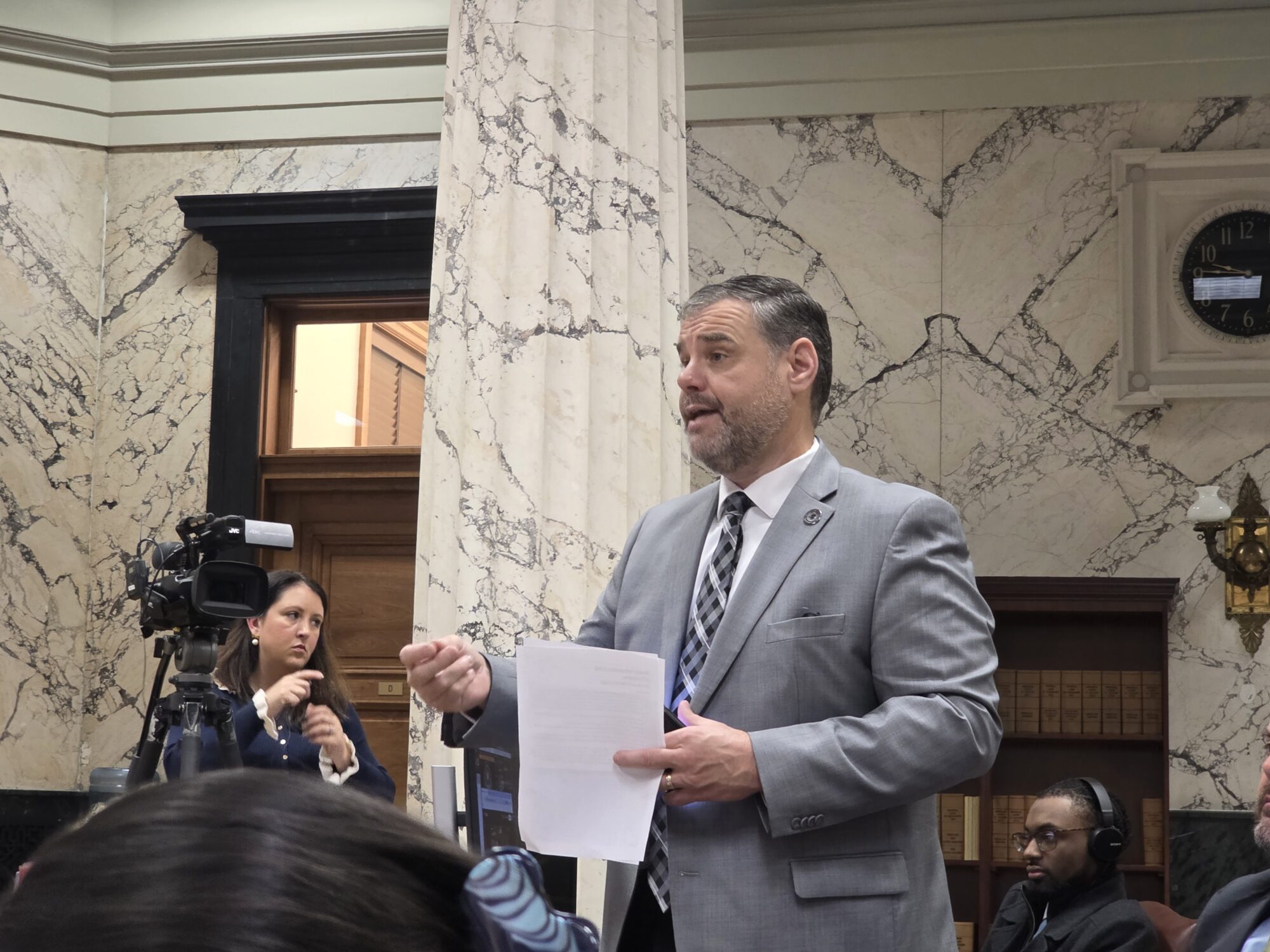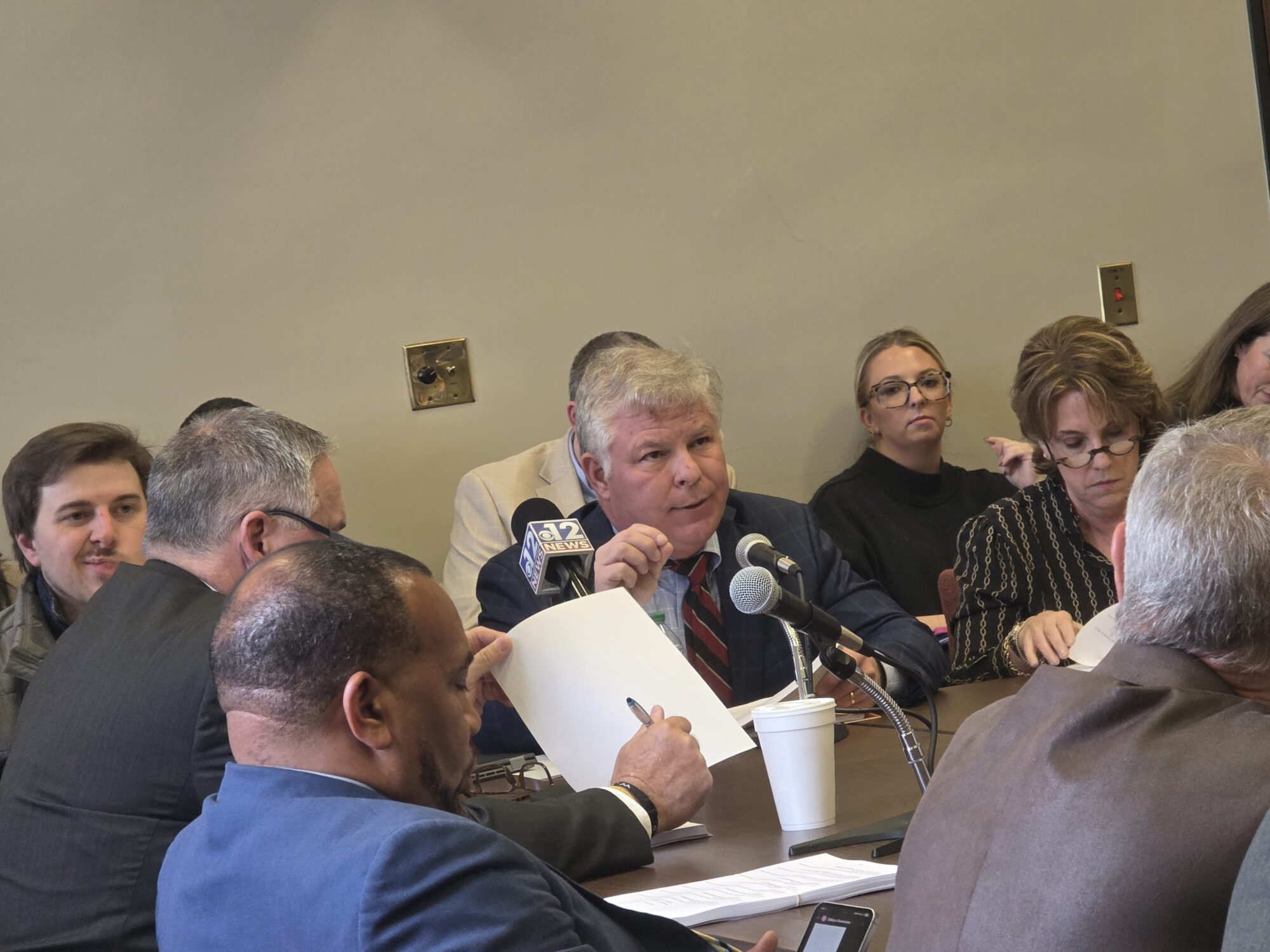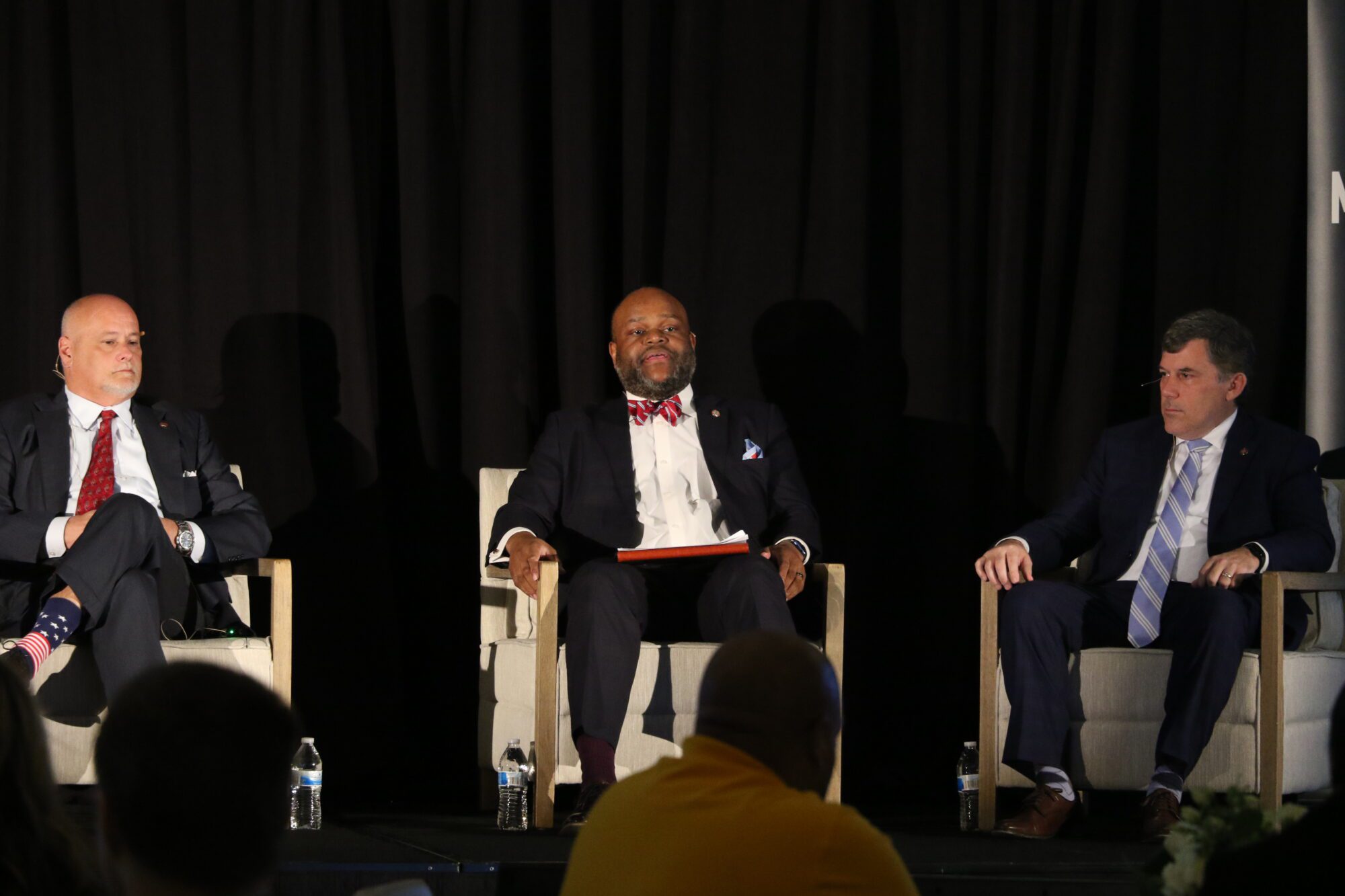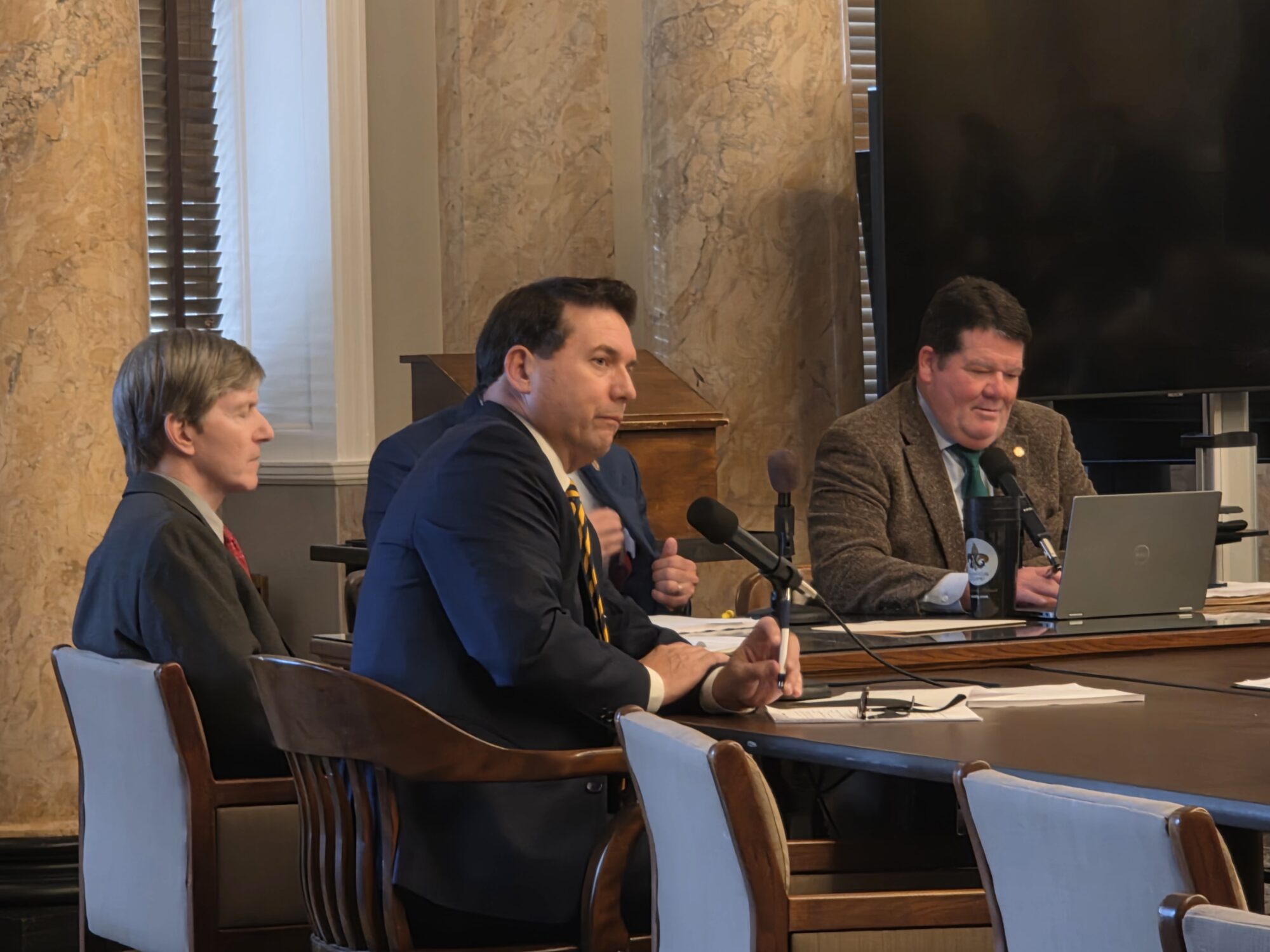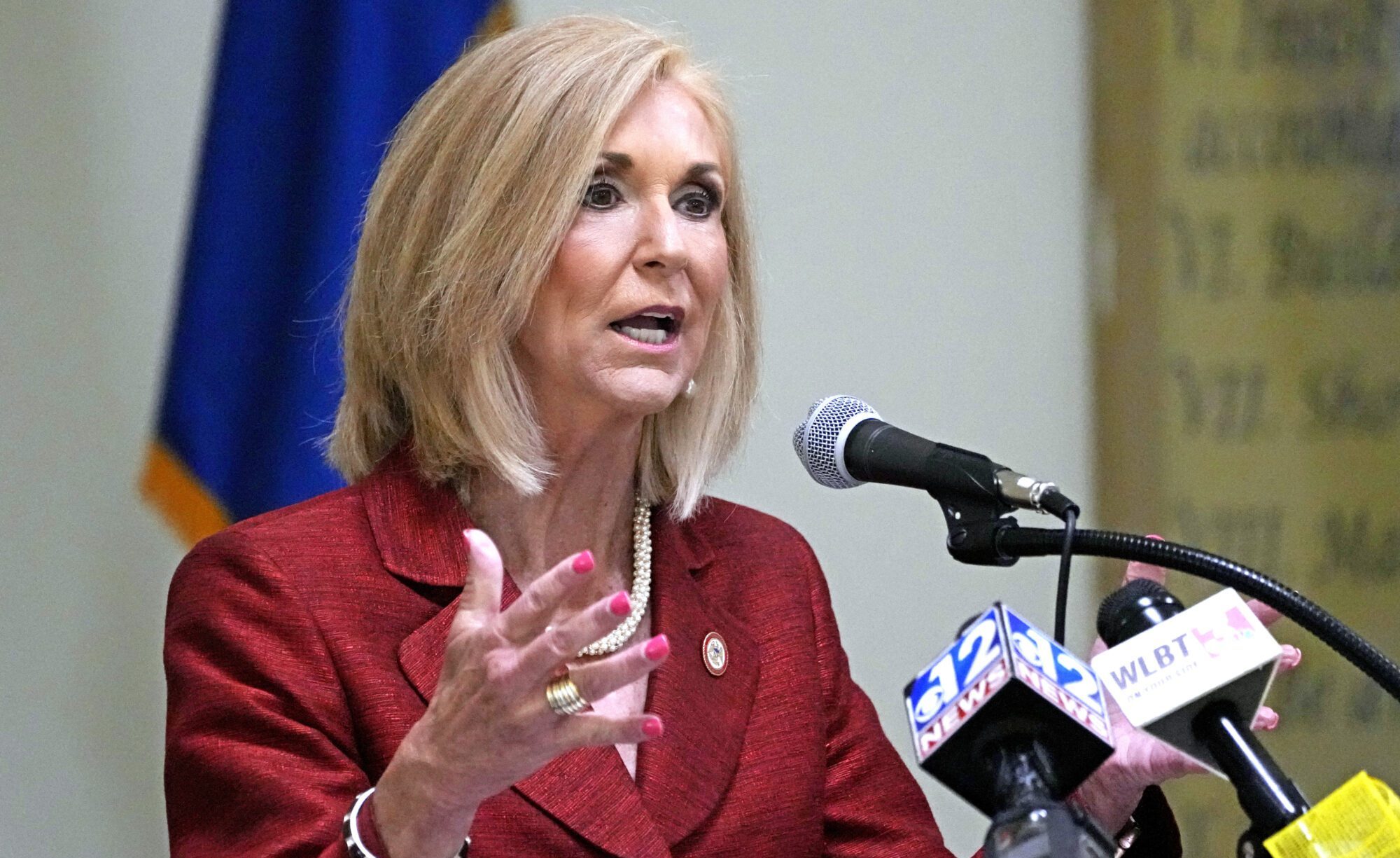
Mississippi Republican Attorney General Lynn Fitch speaks of the duty and service offered by correction officers and staff during an Officers Memorial Service at the Central Mississippi Correctional Facility in Pearl, Miss., Tuesday, May 9, 2023. The ceremony honored the men and women who were killed in the line of duty. (AP Photo/Rogelio V. Solis)
- Fitch joins other attorneys general looking to curb the orchestration of crime within prison walls.
Mississippi Attorney General Lynn Fitch has joined with more than 20 attorneys general in other states in sending a letter to the Federal Communication Commission (FCC) to convince the agency to lift a ban on the use of cellphone jamming technology in correctional facilities.
“Contraband cellphones are a problem in prisons in Mississippi and all over the country,” said Fitch on Wednesday in a statement. “These phones pose a real threat, allowing criminals to conduct criminal activity while sitting behind bars and coordinate violence within correctional facilities.”
She said she was encouraged that the FCC is addressing the issue and giving states the tools to combat this security risk.
The FCC currently prohibits their use of jamming technology.
“There are no exemptions for use within a business, classroom, residence, or vehicle. Local law enforcement agencies do not have independent authority to use jamming equipment; in certain limited exceptions use by Federal law enforcement agencies is authorized in accordance with applicable statutes,” an updated alert posted by the FCC in April 2020 stated.
This prohibition applies to the jamming of radio communications, cellular service, personal communication services and even GPS.
However, Fitch and the other 21 attorneys general across the nation believe allowing the use of jammers within correctional facilities will prevent inmates from having access to communication with the outside world.
“Inmates routinely use smuggled phones to coordinate criminal enterprises, intimidate witnesses, and orchestrate violence both inside and outside prison walls. These activities compromise the safety of correctional staff, other inmates, and the public,” the attorneys general tell the FCC in their letter. “The proposed rulemaking would empower correctional administrators to implement jamming systems that disrupt unauthorized wireless communications within prisons, without affecting legitimate service outside the facility.”
Federal legislation has also been filed in the U.S. Senate and U.S. House that would give states the authority to implement cell phone jamming in correctional facilities.
Other attorneys general who signed the letter to the FCC represent the states of Arkansas, Alabama, Alaska, Georgia, Iowa, Kansas, Kentucky, Louisiana, Missouri, Montana, Nebraska, North Dakota, Ohio, Oklahoma, Pennsylvania, South Carolina, South Dakota, Tennessee, Texas, Utah, Virginia, and West Virginia.

